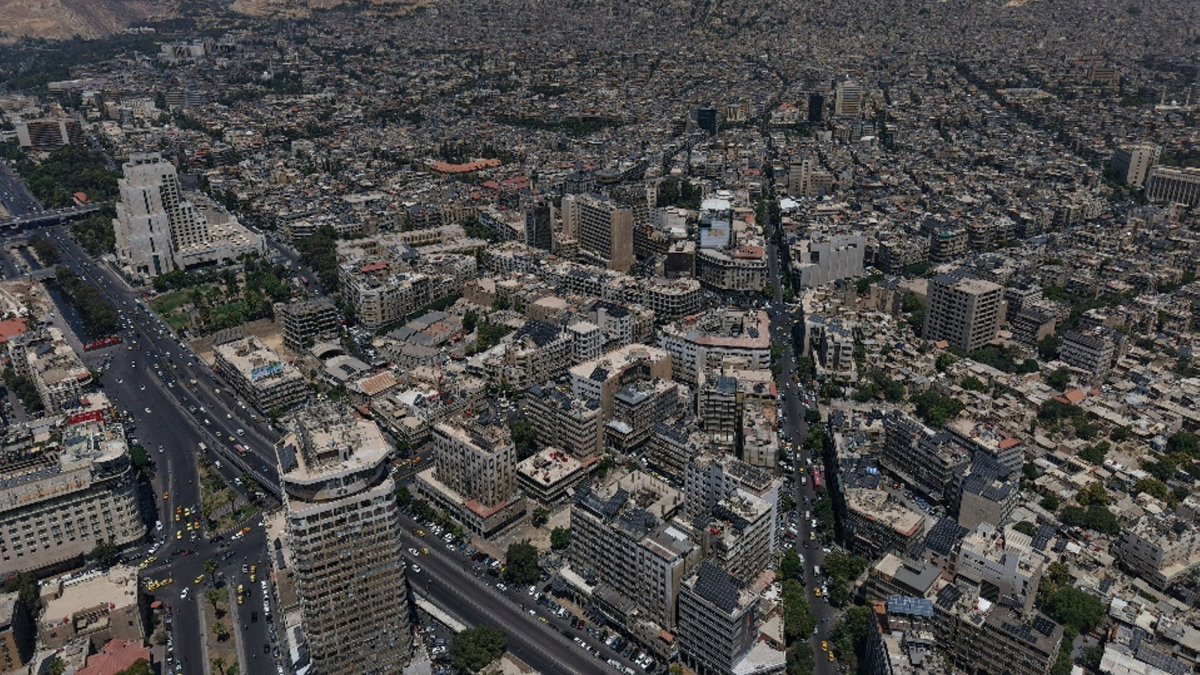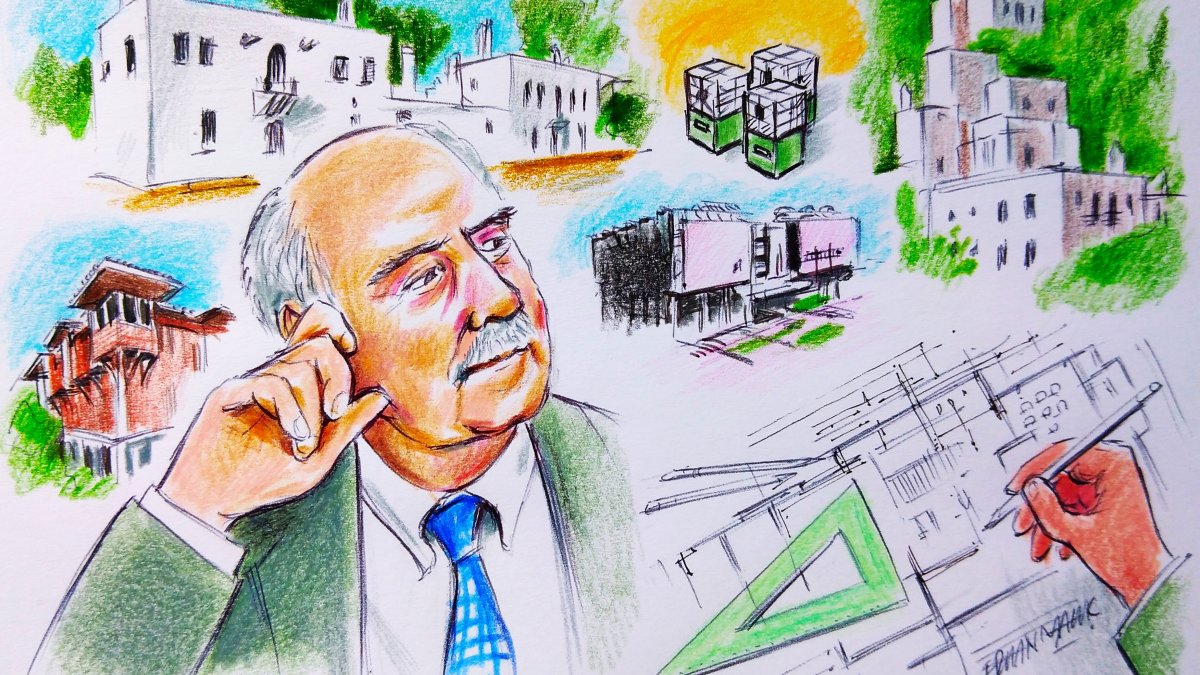Norms and strategic calculations in Europe’s Syria policy
Source: DAILYSABAH
Following the collapse of the Baath regime and Bashar Assad’s flight to Russia, efforts to build a new political, social and institutional order in Syria are rapidly progressing. The challenging process that began after more than a decade of destruction is being closely followed by global actors, especially European countries. These countries have numerous value- and interest-based reasons for their keen interest in Syria’s reconstruction process.
In this context, it is important to note that European countries considered the former Syria a “rogue state” acting in line with the regional interests of Iran and Russia and severed all contact with the West. Russia’s military support and Iran’s influence through its militia networks effectively transformed Syria into an outpost for these two powers. However, the collapse of the Baath regime opened the door to a more pluralistic and outward-oriented political order in Syria. Therefore, from Europe’s perspective, Syria, freed from the influence of Iran and Russia and possessing a political culture relatively more aligned with Western values, is seen as a strategic asset for the reconstruction of regional balances.
For Europe, Syria’s future also carries significance for international law and liberal democratic values. The totalitarian Baath regime contradicted the fundamental normative principles Europe defended. However, at this stage, the new Syrian government demonstrates a respect for international law and norms. Indeed, the following words of European Union Commission President Ursula von der Leyen at the Syria Conference in March 2025 demonstrate that Europe fundamentally interprets the transformation in Syria through normative values: “In the old Syria, a dictator controlled all political and economic power. But in the new Syria, power can go back to where it belongs – that is, to the people of Syria. Europe is ready to do its part in Syria. We will support socio-economic recovery and an inclusive political transition in Syria.”
Only time will tell whether the democratization process in Syria will truly transform into a liberal democracy. Conversely, European countries view even the steps taken toward democratization so far as positive and worthy of support, as the strengthening of democratic institutions in Syria and the establishment of an order based on the rule of law align with the normative foreign policy principles of European countries. Therefore, the countries concerned view the normalization process in Syria not only as a political transition but also as a value-based achievement.
Meanwhile, the civil war in Syria has directly impacted European countries as millions of Syrians have fled their country to save their lives and sought refuge in Europe. Currently, approximately 1.5 million Syrians live in European countries, two-thirds of whom are in Germany. The irregular mass migration that has occurred in a short period of time has strained Europe’s migration management capacity and created a serious burden on social cohesion, employment, security and public spending. However, with the collapse of the Baath regime and the end of the civil war, the primary driver of Syrians seeking refuge in Europe has disappeared. Consequently, the rapid restoration of a stable state structure and safe living conditions in Syria will accelerate the voluntary and dignified return of Syrians in Europe. This optimistic outlook is considered important for European countries, as the return of Syrians to their country will divert budgetary allocations allocated for 15 years for housing, education, health care and social cohesion expenses to other areas.
Furthermore, it is important to remember that the increasing number of Syrians in Europe has paved the way for right wing extremist actors to gain power over time. These parties, which garner votes through anti-immigration policies and public concerns, have gained the power to shift political balances across the continent. The end of irregular migrant movements and the return of nearly 1.5 million people to Syria, now considered a safe country, to their homeland will diminish the legitimacy that aforementioned actors have gained through anti-immigration rhetoric. Therefore, European countries support the construction of a new Syria to protect their own social peace and democratic balance.
It is important to note that, following the outbreak of the Syrian civil war, thousands of Europeans, either driven by financial gain or influenced by extremist ideologies, traveled to Syria and joined terrorist organizations like Daesh and the PYD/YPG. While precise figures are unavailable, reliable research suggests that approximately 5,000 Europeans have joined Daesh and the PYD/YPG to date. Some of them have died, while others are known to have returned radicalized and armed. This naturally poses a threat to public security in European countries. Security forces are working diligently to neutralize these elements, which pose a serious risk. Therefore, stabilizing Syria is considered crucial for preventing new waves of radicalization, addressing existing security risks, and making European cities safer.
Syria’s reconstruction process also presents significant economic opportunities for European countries. Before the civil war, major European countries had limited trade relations with Syria, and numerous European companies had investments there. However, the process that began in 2011 completely halted these economic interactions, and European investors withdrew from the country due to security concerns and sanctions imposed on Syria. However, with the collapse of the Baath regime and the EU’s lifting of all sanctions against Syria as of May 28, 2025, the path to trade relations and investments in Syria has been opened. Indeed, following this development, many European companies have begun investing in Syria again. At this point, it is important to consider that, on the one hand, European countries are searching for new markets due to the ongoing trade war with the U.S., and, on the other, Syria’s reconstruction costs have a tantalizing potential of $400 billion. Due to these two intertwined factors, European investors consider Syria a major opportunity for trade and investment.
Finally, stabilizing Syria is strategically important for Europe’s energy supply security. European countries, seeking to end their energy dependence on Moscow following the Russia-Ukraine war, are striving to establish alternative energy pipelines. It is important to note that the EastMed Pipeline Project, launched with the intention of transporting natural gas from the Eastern Mediterranean to Europe via Israel, the Greek Cypriot administration and Greece, has effectively failed. Therefore, the EU is reevaluating the project to transport Gulf natural gas to Europe via the Qatar-Saudi Arabia-Jordan-Syria-Türkiye route, which was initially proposed to meet the growing energy needs of member states but was shelved in 2009 due to the Assad regime’s lack of support. For this project to materialize, Syria must redesign its energy infrastructure from scratch and bring it into compliance with international standards as part of its reconstruction efforts, and a strong cooperation mechanism must be established among potential project partners.
Overall, it would be misleading to interpret the European commitment to Syria’s reconstruction as purely altruistic or value-based. The reality is that European countries have made their support conditional on the political trajectory of the new Syria. Any shift that diverges from the Western-oriented vision of post-Assad Syria has been met with diplomatic caution or indirect threats to halt aid and investments. Moreover, despite the EU’s rhetoric of strategic autonomy, its policies in the region remain closely coordinated with those of the U.S. and Israel. The joint emphasis on limiting Iranian influence, controlling migration and ensuring energy corridor alignment highlights a pattern of strategic convergence, rather than independence.
The original article: belongs to DAILYSABAH .


